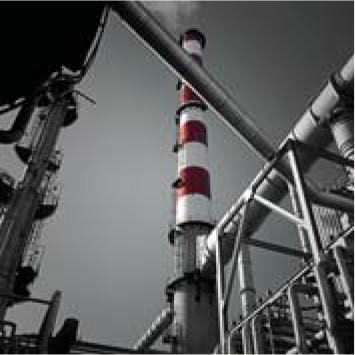
The Ministry of Power (MoP) has recently notified the draft Electricity (Change in Law, Must-run Status, and Other Matters) Rules, 2020. The draft rules aim to ease and expedite the process of availing of compensation for generators affected by “change in law” events after the submission of bids in tariff-based competitive bidding. If finalised, the policy measure could bring in significant relief for gencos facing under-recoveries owing to changes in law, as the current process of litigation to get compensation is cumbersome and time-consuming. A case in point is the imported coal-based power projects of Adani Power and Tata Power in Mundra, Gujarat, which were impacted due to a change in Indonesian coal-pricing regulations in 2010, leading to an upward revision in fuel and generation costs. The companies have been mired in regulatory proceedings and litigation ever since.
The draft rules also seek to address another key issue in the sector – backing down of renewable energy generators. The ministry reiterates the “must-run” status of renewable energy projects and proposes that compensation should be paid to generators in case generation is curtailed, even for grid security reasons. Of late, due to the reduction in renewable energy tariffs, the state discoms have been liberally backing down power generated by older renewable projects, citing high tariffs. The Andhra Pradesh government’s attempt to renegotiate renewable PPAs is a classic example. The rampant curtailment of power leads to significant losses for renewable energy generators especially as they have narrow margins.
Power Line presents an overview of the draft rules…
Adjustment in tariff in case of change in law
The draft rules propose that in case of a change in law event, the monthly tariff would be adjusted in line with the principle that the affected party is compensated, so as to restore it to the same economic position as before the event had occurred. Also, the pass-through should take place expeditiously, within 30 days of the event. The pass-through will be on a per unit of electricity basis and will be recovered as a part of the tariff.
The bidding document or PPA is required to lay down the formula for the calculation and recovery of the pass-through. If this is not included, the government may prescribe a formula or use the formula provided in the draft rules. The pass-through will come into effect automatically after 30 days of the change in law event. Subsequently, the generator/intermediary procurer/procurer is required to submit the relevant documents to the regulatory commission for true-up within 30 days of the pass-through coming into effect. The commission will pass the true-up order in the next 60 days.
Must-run
The draft rules reiterate that renewable energy plants with PPAs, including solar, wind, hybrid, hydro and others, will be treated as must-run plants, and power from these plants will not be curtailed owing to merit order despatch or any other commercial consideration. Power from these plants can be curtailed or regulated only in case of technical constraints in the grid or for reasons of grid security as per the provisions of the Indian Electricity Grid Code.
The draft rules further provide that in case of curtailment, the procurer/discom will pay compensation to the generator as per the rate given in the PPA. However, if the renewable genco receives the curtailment notice at least 24 hours in advance, it will mandatorily sell the unscheduled power on the power exchanges. The amount realised by selling the power on the exchanges will be adjusted against the compensation payable as per the PPA on a monthly basis. In case the rate of compensation is not mentioned in the PPA, it will be fixed at 75 per cent of the tariff.
Trading licensee to procure power for distribution licensees
The draft rules propose that the intermediary procurers or trading licensees can procure power through a transparent competitive bidding process (as per Section 63 of the Electricity Act, 2003) for sale to discoms. In the case of bidding on a bucket filling basis, where multiple suppliers are selected at different rates, the weighted average of all bids will be the final bid rate and power may be offered by the intermediary procurer for sale at this rate. The draft rules also have provisions for agreements signed between trading licensees and distribution licensees prior to the enforcement of these rules for the sale of renewable energy from suppliers selected via competitive bidding. For such agreements, the applicable tariff will be equivalent to the weighted average tariff of all suppliers selected under competitive bidding. The tariff will be adopted by the regulatory commission and trued-up on a yearly basis.
Conclusion
The MoP’s notification of the draft rules is a welcome move, but the key lies in its implementation. There are also some likely challenges. States may object to the proposed changes given the fragile financial health of their discoms and the rising dues to gencos. Meanwhile, the Central Electricity Regulatory Commission has expressed its discontent to the ministry for stepping into its regulatory jurisdiction. For now, it is a wait-and-watch situation.
Neha Bhatnagar
